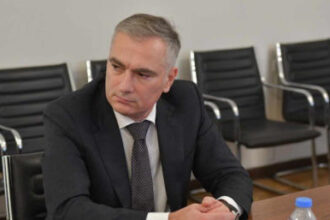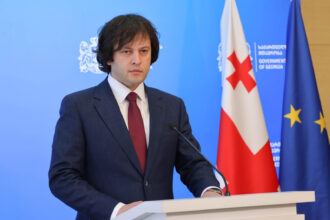Throughout the history of EU-Georgia relations, it has always been the EU who has taken the initiative and provided new ideas. Georgia has shown little initiative and creativity in this regard, and we need to focus on strategic and innovative thinking.
With Belarus currently not a part of the equation until there is a change in power in Minsk, and Georgia’s two South Caucasus neighbors not as interested in close integration and cooperation with Brussels, it was somewhat surprising that Georgia, Moldova, and Ukraine formed a trilateral alliance known as the “Association Trio.” Their main goal is to work together and cooperate on all matters related to European integration, which is of strategic and existential importance for all three nations. This is especially relevant for Georgia, as it prepares to apply for full EU membership in 2024.
Last month, the respective ministers of the three countries signed a memorandum in Kyiv, and this week, the presidents of the three nations held their first trilateral meeting in Batumi. However, it remains to be seen if this format will be an effective tool for Georgia, according to Teona Lavrelashvili, Project Manager of the European Party Monitor at KU Leuven and former policy officer at the European Commission, DG NEAR. In an interview with GISP, she discussed Georgia’s EU membership bid and the potential of the new TRIO format.
When asked about her thoughts on Georgia’s announced 2024 bid for EU membership, Lavrelashvili noted that many Western commentators, including members of the European Parliament, have expressed skepticism about its potential success.
She believes that there are both pros and cons to this decision. On the positive side, applying for membership puts Georgia on the EU’s agenda and revives interest in the country’s European perspective. It also cannot be denied that Georgia has a European perspective, as it is located within the European continent and is eligible to apply for EU membership.
However, timing is crucial in politics, and Lavrelashvili believes that the timing of this announcement was not ideal. She points out that there was little consultation between Georgia and its European partners, and the decision seemed to come out of nowhere, catching Brussels off guard. This lack of communication may have contributed to the lukewarm response from MEPs and other stakeholders, who were not immediately supportive and seemed confused about the decision.
Lavrelashvili also notes that the decision may have been politically motivated, with the upcoming elections in mind. She believes that the government needs to communicate clearly to the public that the reforms being made are for the benefit of the country, not just to please the EU. Otherwise, this decision may lead to further disappointment.
In conclusion, while the decision to apply for EU membership has its advantages, the lack of consultation and potential political motivations may hinder its success. The government needs to focus on communicating the benefits of these reforms to the public and prioritize the country’s interests over political gain.
Read More @ georgiatoday.ge




